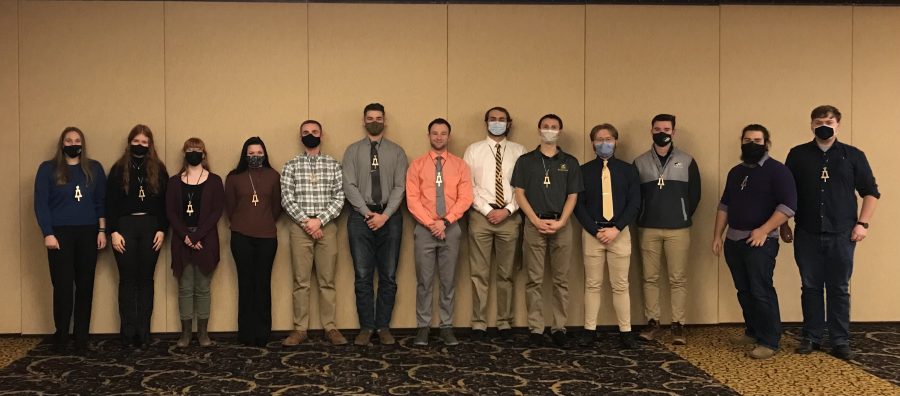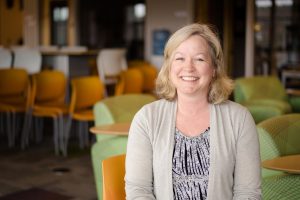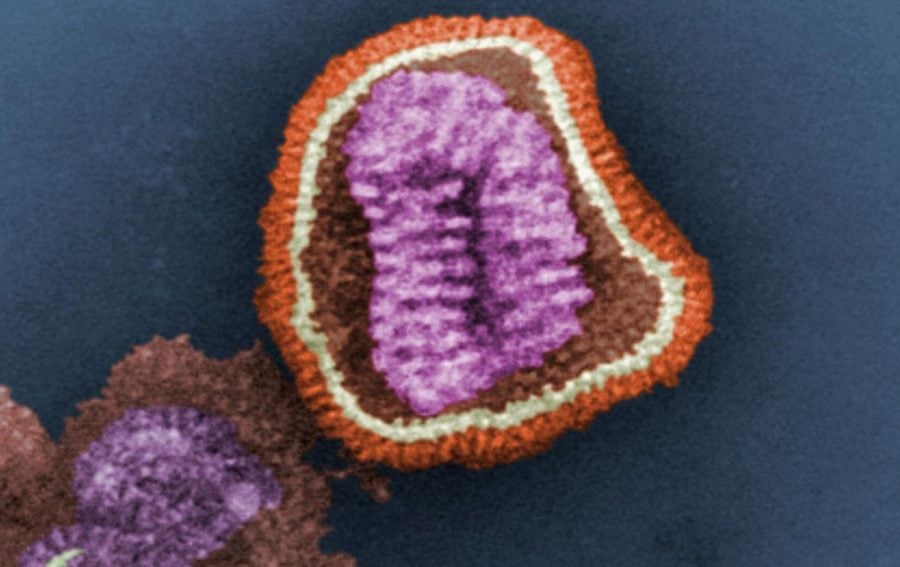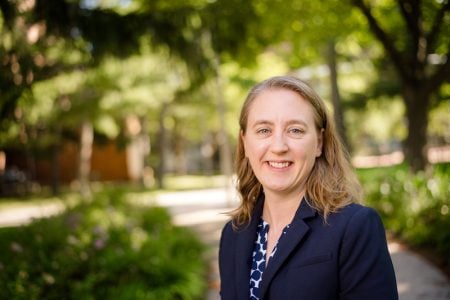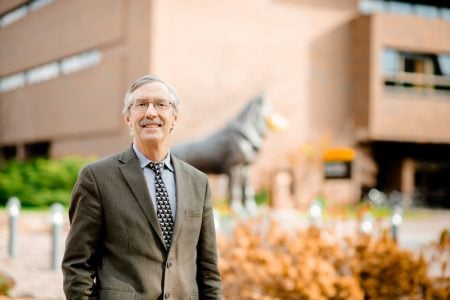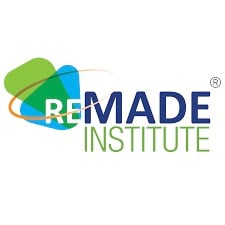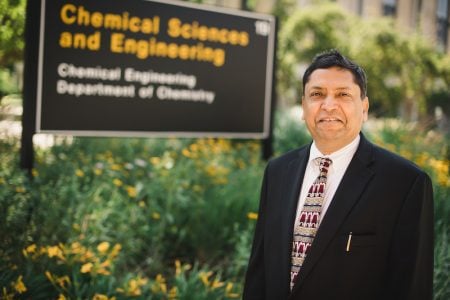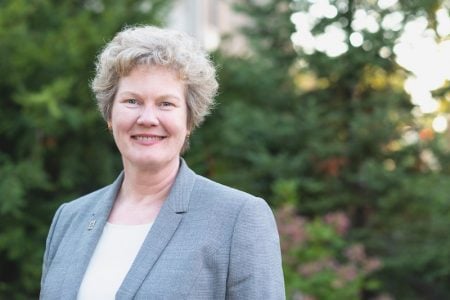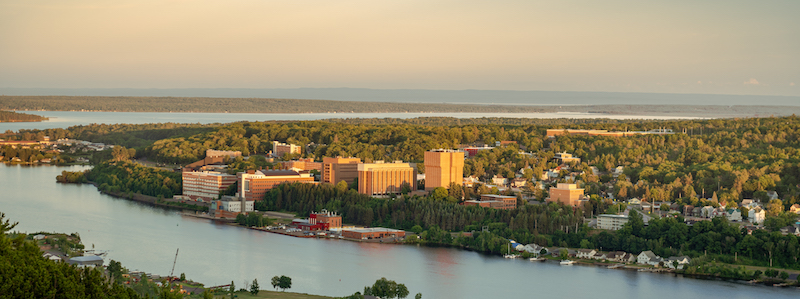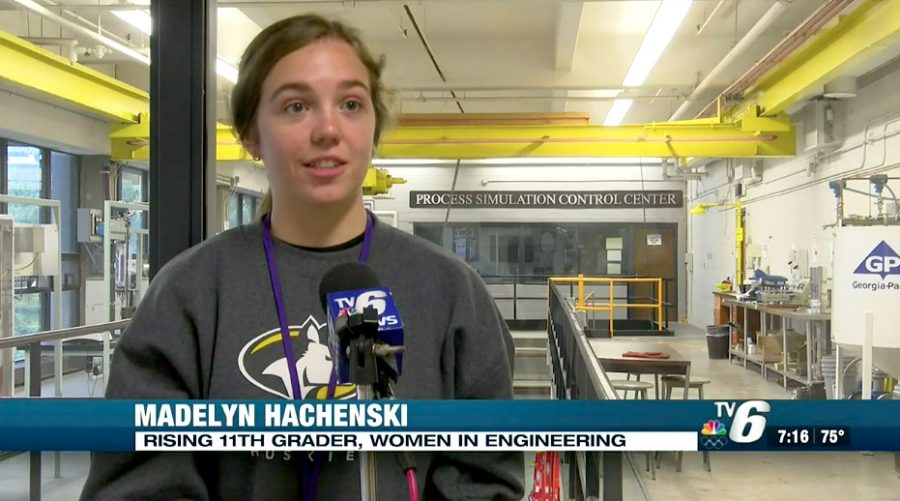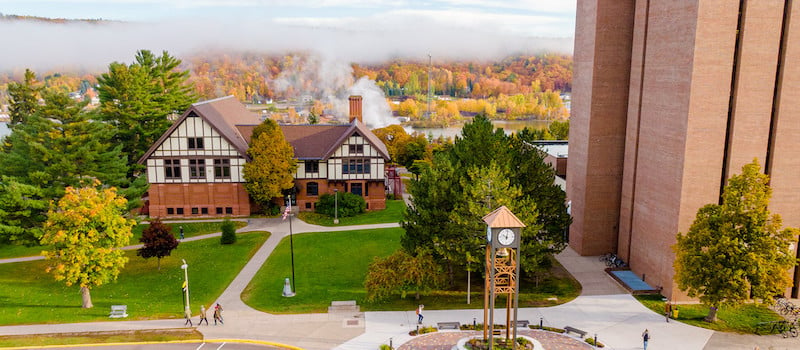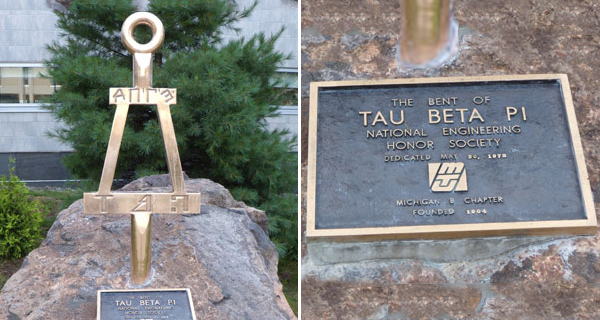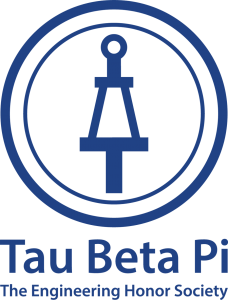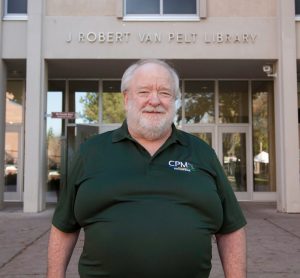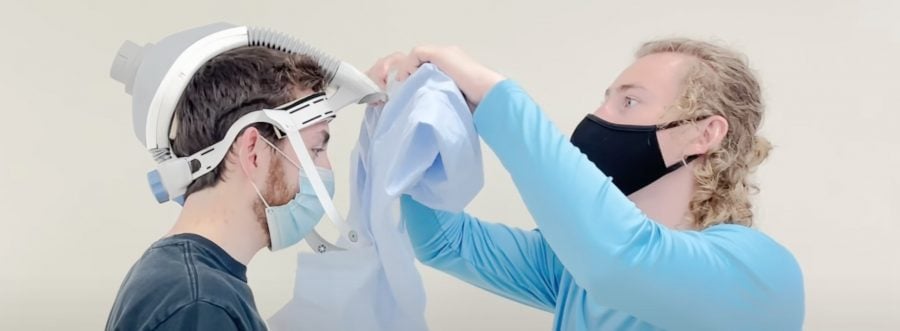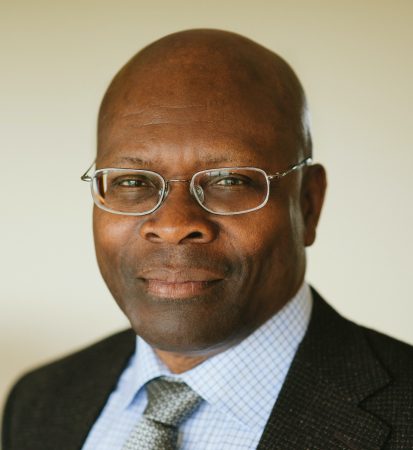
Michigan Tech alumnus Samson A Jenekhe ’77 has been elected to the National Academy of Engineering, among the highest professional distinctions accorded to an engineer. Dr. Jenekhe is honored for discovery and understanding of conjugated materials for organic light-emitting diodes (OLEDs) widely used in the commercial sector.
A professor of chemistry and the Boeing-Martin Professor of Chemical Engineering at the University of Washington, Jenekhe studies the fundamental physical and chemical properties of semiconductor materials, as well as their practical applications. Research topics have included organic and flexible electronics, the use of organic light-emitting diodes for lighting and displays, energy storage and conversion systems, semiconducting polymers and polymer-based photovoltaic systems.
Jenekhe is a Chemical Engineer who earned his BS at Michigan Tech and his MS, MA, and PhD at the University of Minnesota. Jenekhe worked as a research scientist for Honeywell, Inc. and later joined the faculty at the University of Rochester, before joining the faculty at the University of Washington in 2000.
He is a fellow of the American Association for the Advancement of Science, the Royal Society of Chemistry and the American Physical Society, which in 2021 also awarded him the Polymer Physics Prize. He also received the Charles M.A. Stine Award for Excellence in Materials Science from the American Institute for Chemical Engineers in 2014.
Read More
Samson A. Jenekhe’s Pioneering Polymer Work Paved the Way for Commercial OLEDs
US Department of Energy: OLED Basics
Watch
Distinguished Chemical Engineering Seminar given by Professor Samson Jenekhe, University of Washington. Held on 2 March 2016 at the Department of Chemical Engineering, Imperial College London.

